- About Ramapo
- Academics
- Admissions & Aid
- Student Life
- Athletics
- Alumni
- Arts & Community
- Quick Links
- Apply
- Visit
- Give
FYS Courses by Topic and Section ID
INTD 101-15 - Arguments For and Against Alternative Medicine
Mondays & Thursdays, 6:05 – 7:45 p.m.
CRN 40175
Kelsey Brentnall
Adjunct Faculty
With the increasing popularity of wellness and prevention in healthcare, alternative medicine is emerging as an option for healthcare consumers. Many are choosing to either supplement Western medicine or drop it altogether in favor of herbal teas, acupuncture, aromatherapy, yoga, hypnosis, reiki, and many other forms of complementary medicine. The purpose of this course is to explore these alternative practices and their efficacy from the standpoint of both a healthcare consumer and provider. Students will engage in hands-on exploration of these medicines while also analyzing primary sources to develop their own opinions about alternative practices.
Download Full Syllabus
Peer Facilitators
INTD 101-16 - The Scientific Agenda: Distinguishing Science, Pseudoscience, Hoaxes, and Conspiracy Theories
Tuesdays & Fridays, 11:50 a.m. – 1:30 p.m.
CRN 40076
Emma C. Rainforth
Professor of Environmental Science/Geology
Is there such a thing as a “scientific agenda”? Some say that Big Science is out to oppress, confuse and manipulate you. Climate change is a hoax! We can’t trust scientists, they’re just in it for the money! It’s all baloney! Vaccines cause autism, that one guy said so! Science can’t be trusted! When has it ever gotten it right? (I mean, it’s just sheer luck that “they” know when solar eclipses are, right?) Okay already! In this section, we’ll explore what science is, and is not; whether “fair and balanced” reporting is helpful; how to spot “dodgy science” (whether due to accidental errors, or deliberate misrepresentation of the data); and take a look at some of the wilder scientific hoaxes and conspiracy theories (“flat earth”, anyone?).
Download Full Syllabus
Peer Facilitators
INTD 101-17 - Level Up: Being a Leader in Today's Society
Mondays & Thursdays, 6:05 – 7:45 p.m.
CRN 40077
Nicole Pedoto
Adjunct Faculty
This course will examine different styles of leadership and how they apply situationally and to the self . Students will utilize text, articles, and current events to examine, compare, and contrast different leadership styles. We will analyze these styles and how they are applied across different mediums in society. We will engage in activities and assignments that will challenge you to think, write and speak about leadership and how its principles can be applied to everyday life, being successful, and achieving future goals. Students will also gain a deep understanding of Ramapo’s academic programs, policies and resources. With the support of your instructor, peer facilitators and classmates, you will complete the course with a better sense of how to maximize your potential as a college student and future leader in your field.
Download Full Syllabus
Peer Facilitators
INTD 101-18 - Issues in Health Care: Exploring a Career as a Medical Profession
Tuesdays & Fridays, 1:45 – 3:25 p.m.
CRN 41161
Mark A. Caselli, M.D.
Adjunct Faculty
This first-year seminar course is designed for students interested in pursuing a career as a medical professional. It will explore the many facets of the road to becoming a health care provider and an advocate for global health. We will examine the political, ethical, moral, cultural, educational, and financial issues that affect the delivery of health care both in the United States and in many other countries in the world. Aspects of the Patient Protection and Affordable Care Act, physician assisted suicide, the opioid epidemic, the COVID-19 pandemic, and the social and cultural determinants of healthcare will be explored with emphasis on how they effect our nation’s healthcare and the practice of medicine. We will also explore the many issues that affect the critical decisions that must be made in providing medical care for our patients, as well as the consequences of our decisions. This course will utilize specially selected readings to assist in class discussions on medical and healthcare issues. This will give the pre-healthcare profession student an opportunity to experience the type of problems they may encounter in the world of medicine. This experience will also demonstrate the need for the medical professional to be capable of preparing (research and writing skills) and presenting (public speaking skills) a paper before a group of peers. This experience also embraces the concept of the need for life-long learning. This course will help to impart an understanding of what lies ahead in becoming a health care provider as well as an appreciation of the challenges in providing health care in our changing world.
Download Full Syllabus
Peer Facilitators
INTD 101-19 - With and Beyond the Human: The Secret Lives of Animals, Plants, and Vibrant Matter
Mondays & Thursdays, 2:15 – 3:55 p.m.
CRN 40179
Marianne Shaneen
Adjunct Faculty
As humans, every aspect of our lives is in intimate, dynamic relationship with the nonhuman world. We don’t just profoundly impact nonhumans, but animals, plants, and geological forces—from octopuses and bacteria, mushrooms and coral, and water and wind, to uranium and plastic—have agency that powerfully affects us.
Through examples from literature and mythology, theory, film, and art, and with speculative writing prompts, we will consider: nonhuman personhood and human exceptionalism; animism, myth, and the sacred; hierarchical classifications and ‘the other’; biopolitical networks, the Anthropocene and climate change; and fantasies of cyborgs, ghosts, aliens, and monsters. We will also examine alternatives to dominant Eurocentric, colonialist traditions of ‘mastery’ of nature, by thinkers and artists who are indigenous, feminist, LGBTQ+, and of color.
Download Full Syllabus
Peer Facilitators
INTD 101-20 - K-pop and Its Global Influence
Tuesdays & Fridays, 8:00 – 9:40 a.m.
CRN 41169
Yanghwan Choi
Adjunct Faculty
This class aims to help students understand Korean culture, a significant feature of the 21st-century cultural code: Postmodernism and fusion. Korean culture has developed rapidly over the past 30 years. Through three inflection points of substantial change(K-Wave), Korean pop culture made changes that expanded geographical and cultural diversity. This class will provide an opportunity to examine the transformation process in Korean culture from both synchronic and diachronic perspectives. In addition, it will focus on broadening the perspective on cultural fusion in the future.
Download Full Syllabus
Peer Facilitators
INTD 101-21 - Intelligence: Who Gets to Decide?
Tuesdays & Fridays, 11:50 a.m. – 1:30 p.m.
CRN 40298
Paula Carabell
Adjunct Faculty
Should we measure intelligence by test scores and the mastery of traditional academic subjects or should creative and/or moral values be considered the highest form of achievement? This course will explore such questions through both cinematic and textual means. We will choose from such films as Freedom Writers (2007), La Classe (2008), To Sir with Love (1967), Educating Rita (1983), The Emperor’s Club (2002) and Dead Poets Society (1989) and consider them in light of classical philosophy as well as in relation to modern and contemporary ideas on education and film.
Download Full Syllabus
Peer Facilitators
Copyright ©2025 Ramapo College Of New Jersey. Statements And Policies. Contact Webmaster.
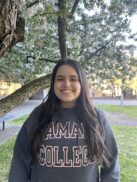
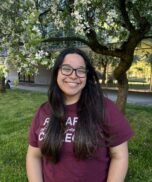
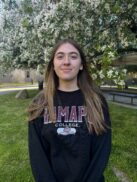
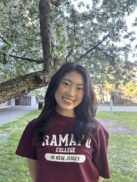
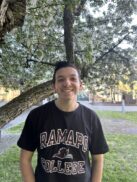
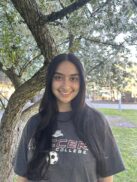
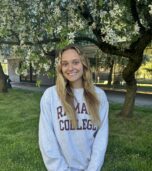
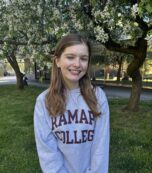
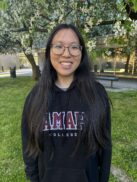
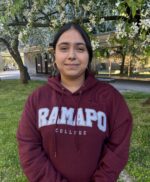


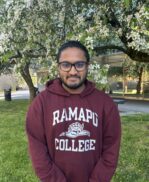
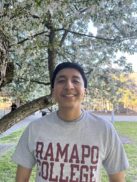

Follow Ramapo